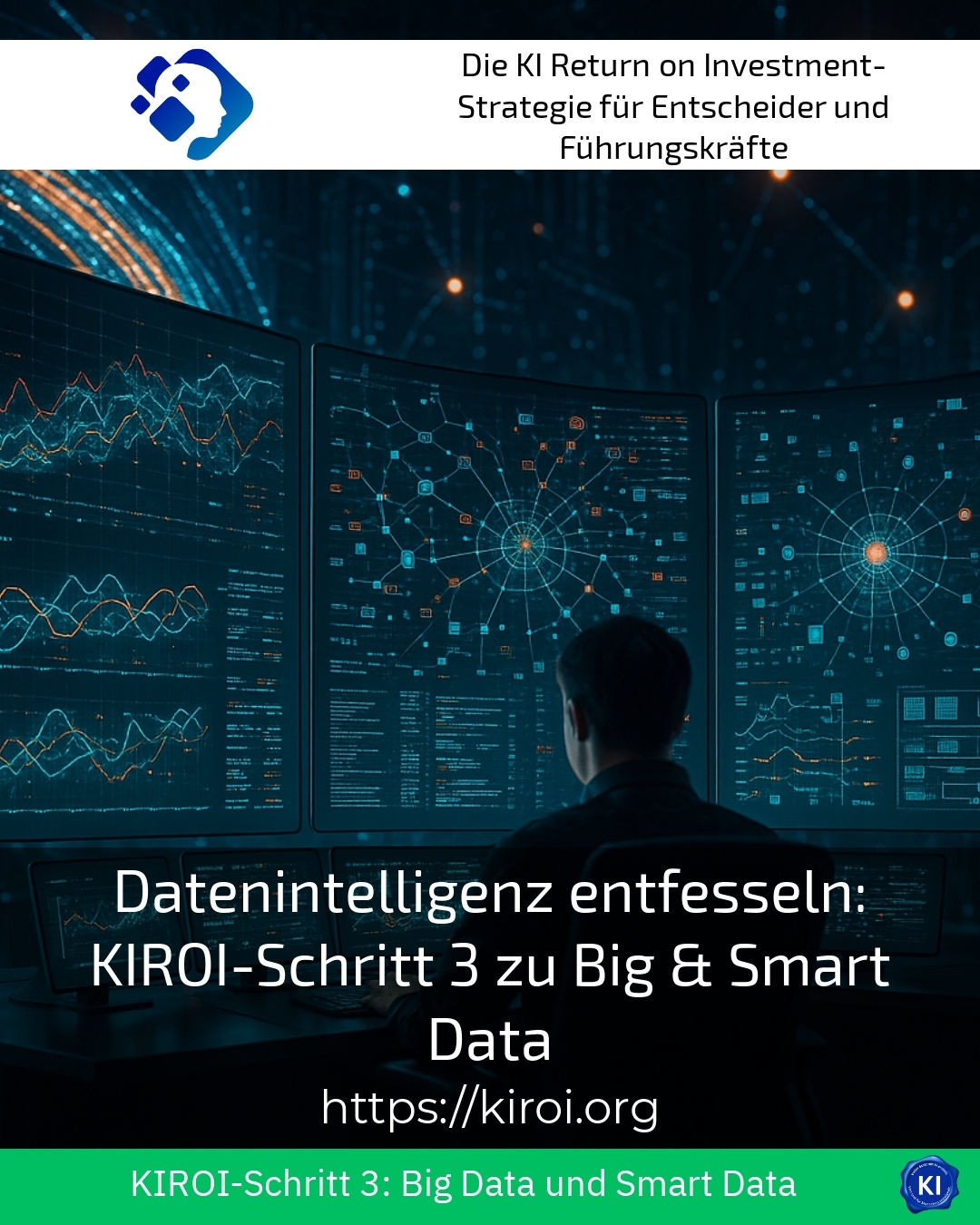Understanding data intelligence in practice
Data intelligence is becoming increasingly important in many industries, precisely because companies today have to deal with an enormous volume of data. This raises many questions: Which data is really important? How can it be utilised efficiently? How can focussed insights be gained from large, confusing volumes of data? This is precisely where the idea of data intelligence comes in and provides effective support for artificial intelligence projects.
From a mountain of data to targeted decision support
The challenge is not only to collect large amounts of data - so-called big data - from the flood of information, but also to transform it in a meaningful way. Data intelligence means processing raw data in such a way that it can be utilised immediately. This is referred to as smart data: data that is filtered, cleansed and contextualised. This enables companies to react more quickly and make more targeted decisions.
A manufacturing company, for example, receives numerous machine data in real time. Thanks to intelligent processing, it immediately shows which systems require maintenance or which processes can be optimised. This not only saves costs, but also increases operational reliability.
Data intelligence also helps in logistics: sensor data from vehicles is evaluated in order to dynamically adapt routes and optimise delivery times. In this way, intelligent data processing ensures more efficient processes and a better customer experience.
In retail, customer data from various sources can be combined to plan targeted marketing campaigns. Only the really relevant information is used, which minimises wastage.
KIROI BEST PRACTICE at company XYZ (name changed due to NDA contract)
As part of a digitalisation project, KIROI Coaching supported a manufacturing company in creating a clear overview from widely ramified sensor and machine data. The targeted filtering and bundling of information enabled bottlenecks to be recognised at an early stage and maintenance work to be planned precisely. The project teams reported how data intelligence significantly improved the understanding of processes and resources could be utilised more efficiently.
Why pure data volumes are not everything
A common misconception is that more data automatically leads to better decisions. However, the sheer volume of data - big data - can be overwhelming and confusing. Without proper filtering and processing, there is a risk of a flood of information that hinders rather than promotes action.
Data intelligence, on the other hand, focuses on quality, i.e. smart data: only relevant and reliable information is incorporated into the decision-making process. This improves the precision of analyses and often makes solutions tangible more quickly.
In the energy sector, for example, large quantities of measured values are recorded. Intelligent data processing makes it possible to accurately predict peak loads or outages and thus make power grids more secure. Without this processing, the amount of data would remain unmanageable and useless.
In the financial sector, data intelligence is evident when analysing transactions. Targeted filtering is the only way to quickly recognise suspicious patterns and prevent fraud attempts.
Intelligent data solutions also support patient care in the healthcare sector. Sensors continuously supply vital data, which is analysed by intelligent systems and interpreted in the right context - for better diagnoses and treatment plans.
KIROI BEST PRACTICE at ABC (name changed due to NDA contract)
An SME in the mechanical engineering sector asked for support in implementing a data-based quality control system. The integration of smart data significantly reduced reject rates. The coaching team provided impetus on how processes can be adapted to be data-orientated and how employees can handle this new data intelligence with confidence.
Data intelligence as a companion for AI projects
Many companies come to us with the desire to utilise the potential of AI, but are faced with the complex task of preparing data in a meaningful way. This is where the role of data intelligence becomes apparent as an essential step towards successful AI integration.
KIROI coaching provides support as a guide to give impulses on how data streams can be analysed and transferred into customer-oriented solutions. The aim is to master not only technical but also organisational challenges in dealing with data.
Especially when introducing new systems, clients often report how important it is for data intelligence to respond flexibly to different requirements while maintaining a focus on relevant information. This turns data into a sustainable competitive advantage.
In the production industry, for example, the combination of sensor data and AI analyses can increase efficiency and reduce downtime. At the same time, employees need understandable tools to interpret and utilise smart data correctly.
The coaching shows ways of achieving this balance - without making unrealistic promises, but with practical steps towards empowerment.
KIROI BEST PRACTICE at DEF (name changed due to NDA contract)
KIROI Coaching was consulted by a company in the logistics sector to discover data-based optimisation potential. Targeted analyses of transport and warehouse data resulted in an intelligent control system. This enabled the users to better underpin operational decisions and react dynamically.
My analysis
Data intelligence forms a central basis for the current utilisation of data in companies. The aim is to gain useful and reliable insights from the amount of data in order to promote innovation and efficiency. KIROI Coaching actively supports projects and provides impetus on how to harmonise data strategies and AI processes.
It is important to handle data responsibly, without promises of effectiveness, but with sound support for companies in all sectors. This enables a sustainable step from the flood of data to targeted intelligence.
Further links from the text above:
[1] What Is Smart Data - DATAVERSITY
[2] Unleashing data intelligence: KIROI Step 3 to Big & Smart Data
[3] Difference Between Big Data and Smart Data
For more information and if you have any questions, please contact Contact us on the topic or read more blog posts on the topic Artificial Intelligence Blog here.















